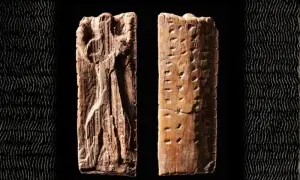Why you should be watching "Dil Na Umeed to Nahin"
4 min readBy Laiba Khalid
Dil Na Umeed To Nahi, which airs on TV ONE and PTV Home, sheds light on the hidden aspects of society, aiming to promote open debates on topics as sensitive as human trafficking, women’s education, PTSD, dowry and physical and psychological impacts of trauma on children.
The stories of Rakhi, Jamshed and Naseem are crafted well by playwright Amna Mufti in three different timelines.
Rakhi, who is the most beloved daughter of her potter family is married off at age 11 to an adult man to lift the burden of a loan her family took to provide for her elder sister’s dowry. She then becomes a victim of human trafficking and is renamed Sumbul, who becomes the highest earning sex worker in a brothel owned by a powerful figure. The drama focuses on the struggles of a suppressed, helpless young woman who refuses to succumb to the extortion of Aunty Jee, the manager of the brothel.
Then there's the story of Jamshed, a dear friend of Rakhi. He is abused by his poverty-struck mother and teacher, yet he finds it in his heart to run off to the city to earn for his mother. All his plans come to a halt when he falls into the hands of the beggar mafia and thieves.
Naseem’s story reminds the audience of how few choices are accorded to middle-class women. From her childhood, Naseem has had a passion for cricket but is unable to pursue it because her father is influenced by a "religious" man named Naeem.
The accurate description of how women in brothels are sold and treated serves as an eye opener in a society which refuses to talk about such grave issues. Over 10,000 cases of human trafficking and smuggling were reported in 2020, by Federal Investigation Agency’s Anti-Human Trafficking Unit. Earlier the same year, the Trafficking in Persons Report by the US State Department downgraded Pakistan from Tier 2 to the Tier 2 watch list. The report pointed out that conviction rates in the country remain low compared to the magnitude of the problem.
The young actors playing Rakhi, Jamshed and Naseem in their childhood is a testament to the incredible talent available in Pakistan. They aptly convey the innocence of childhood and how trauma can dramatically impact their lives.
The serial, however, has not yet gained due recognition because it airs on comparatively smaller channels. Still, some viewers took to Twitter to talk about the acting, direction and storyline of the serial, often criticizing the bigger more ratings-focused channels for refusing to air the show because of the ‘bold’ storyline of commercial sex work.
User ScouserSamar7 expressed his frustration at the “big 3” channels for not airing the show, claiming that it could at least get five million views for each episode.
Another user pointed at how the drama shows the true extent of the power of social media.
In a series of tweets, another user discusses the systematic abuse that victims of human trafficking are subjected to, encouraging more people to watch the show.
User Splendeurr praised writer Amna Mufti for showing the suppressed yet determinant side of women rather than focusing on women's rivalries with their in-laws.
Mufti’s work in other serials shows the harsh realities of society. In ‘Sabz Pari Laal Kabootar’ she highlighted the impacts of poverty and greed on people and the extent to which they will go to tackle financial issues. Similarly, ‘Ullu Baraye Farokht Nahi,’ which aired in 2013, highlights the issues women face and how they stand firm amongst all societal pressures.
Dil Na Umeed To Nahin has not been without controversy. The drama received a notice from PEMRA after its sixth episode aired for inappropriate content. The producers were requested to review and change their content according to the regulatory body’s code of conduct.
This is the second project of Kashf Foundation which has portrayed women’s issues that received a notice from PEMRA. Before this, Udaari, which focused on child abuse, was treated similarly. It is a matter of concern that discussing issues as grave as human trafficking are being silenced under the banner of inappropriate or bold content.
According to the writer, the name of the show is inspired from a famous verse of Faiz Ahmed Faiz which promotes the idea of hope in dire circumstances. The character of Sumbul, after suffering childhood trauma still has hope that things will eventually go well. The drama calls attention to numerous social ills, but at the same time, it advocates the idea of standing still amidst all storms.
The writer is a staff intern and student at the Institute of Business Administration.
For the latest news, follow us on Twitter @Aaj_Urdu. We are also on Facebook, Instagram and YouTube.

























Comments are closed on this story.